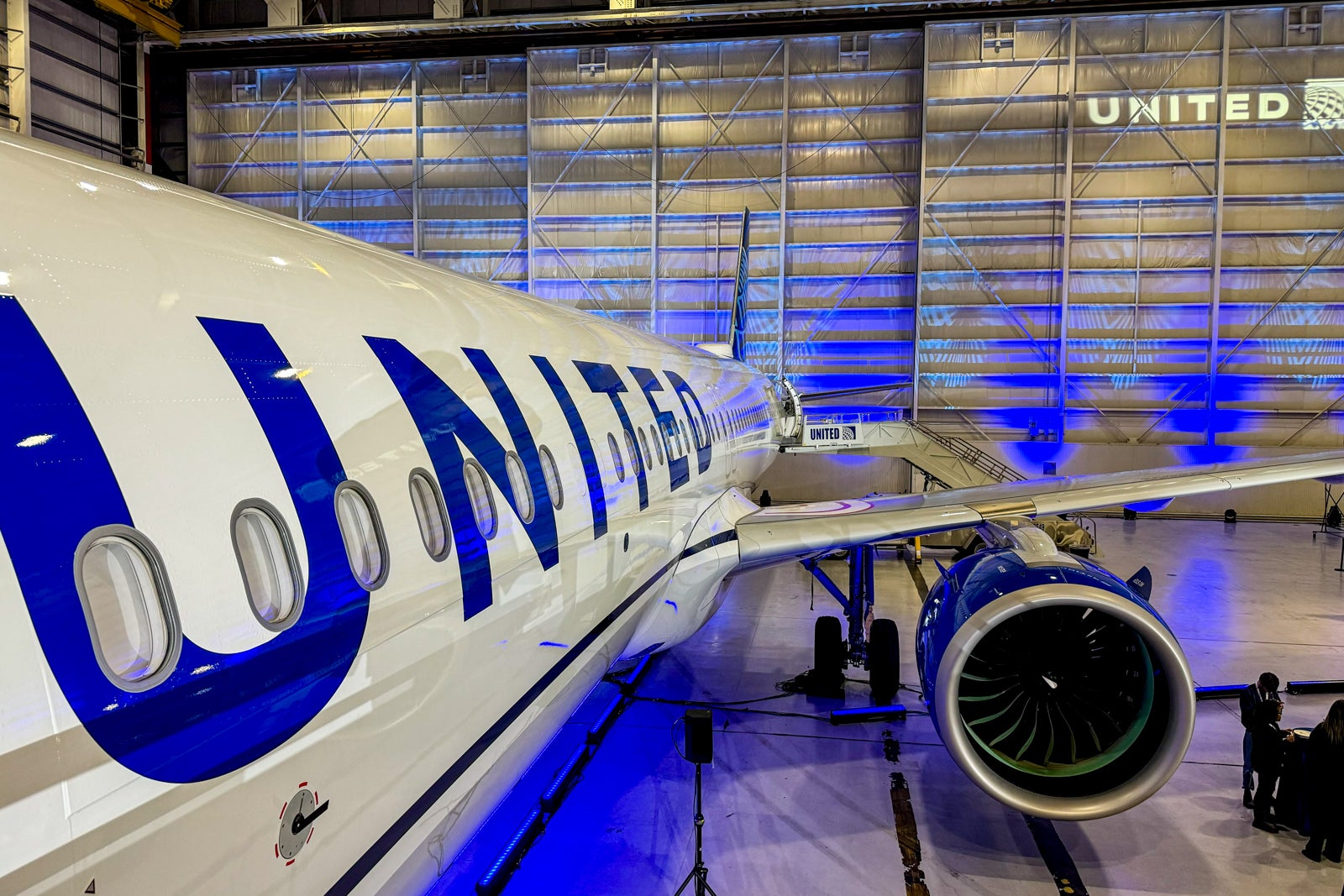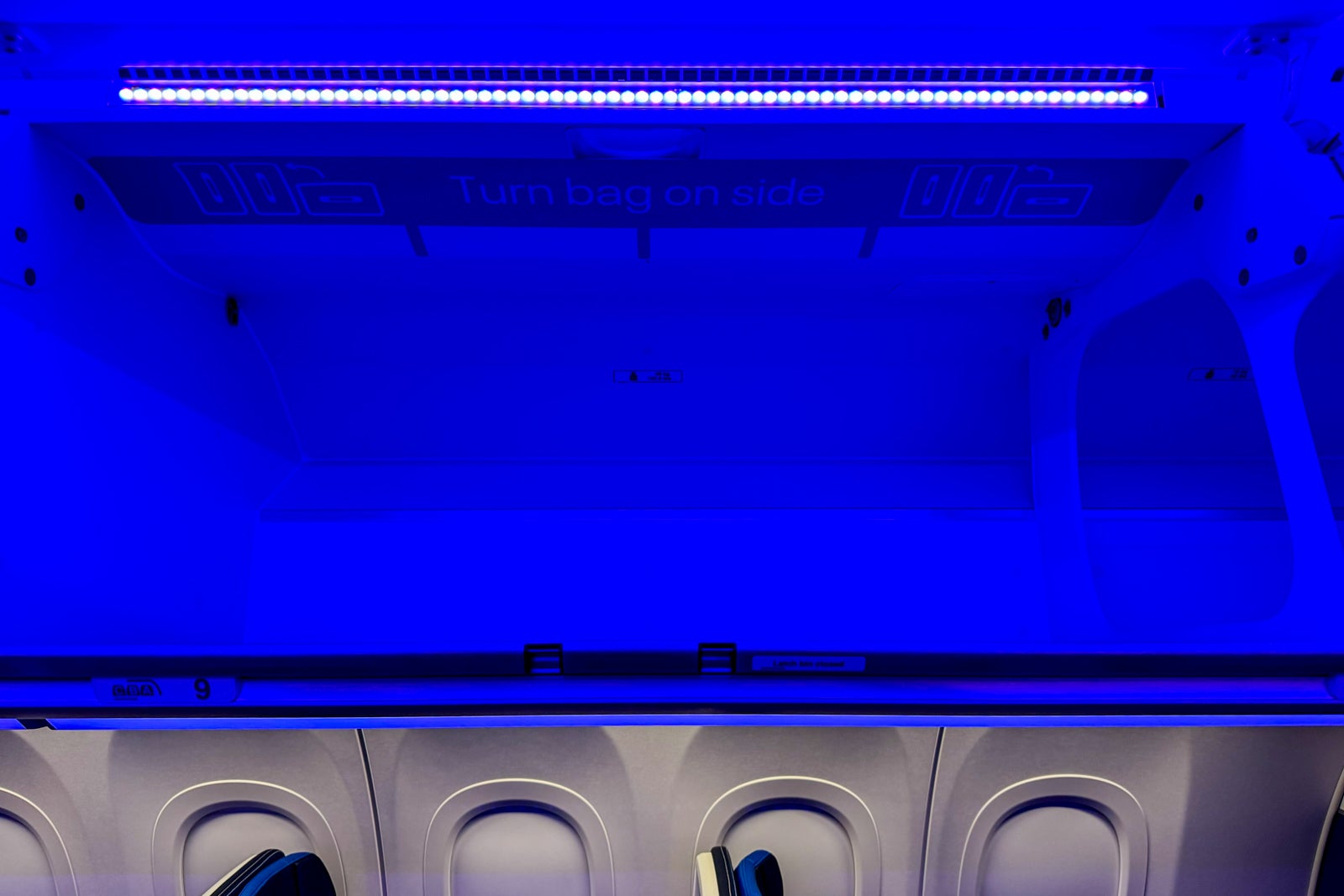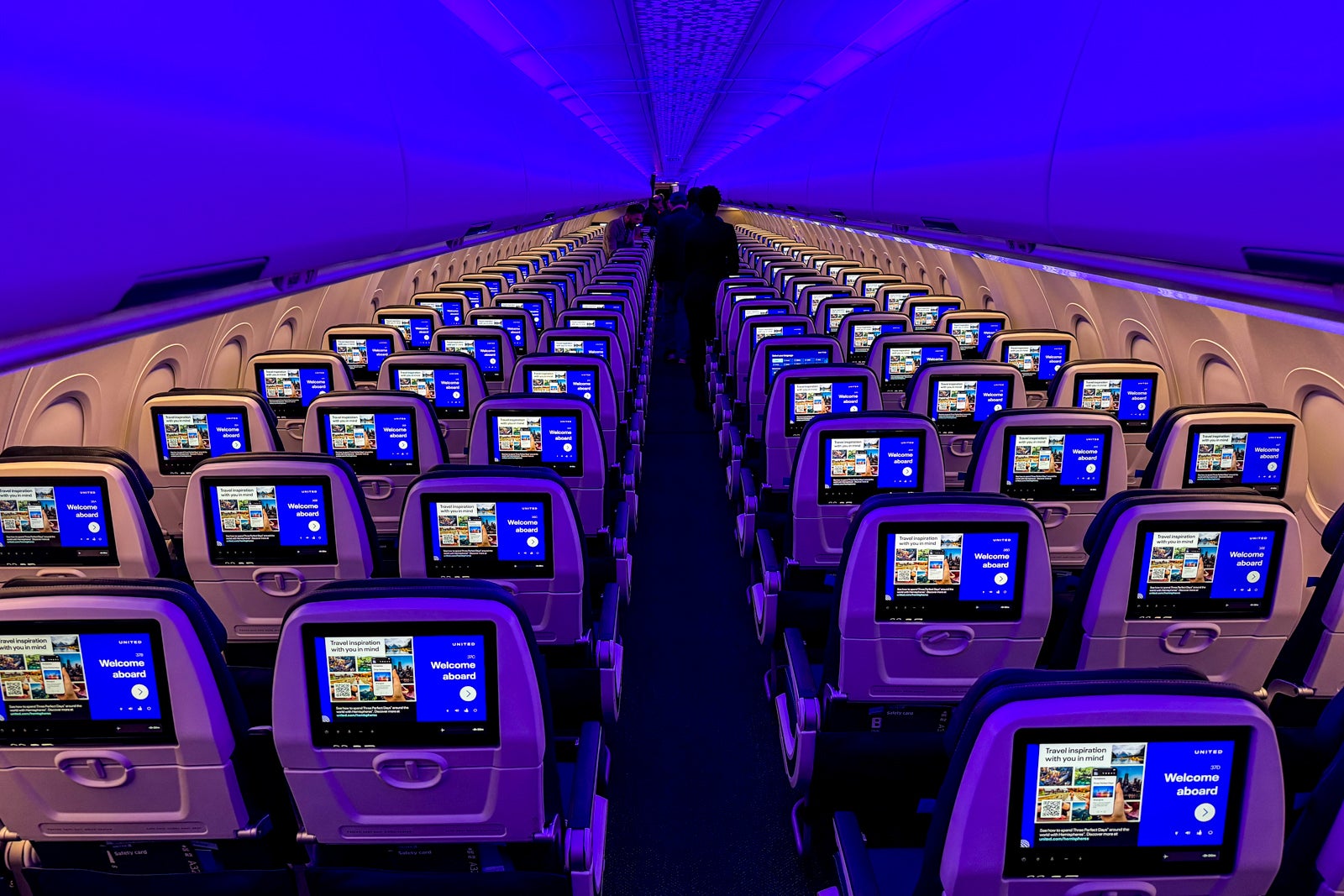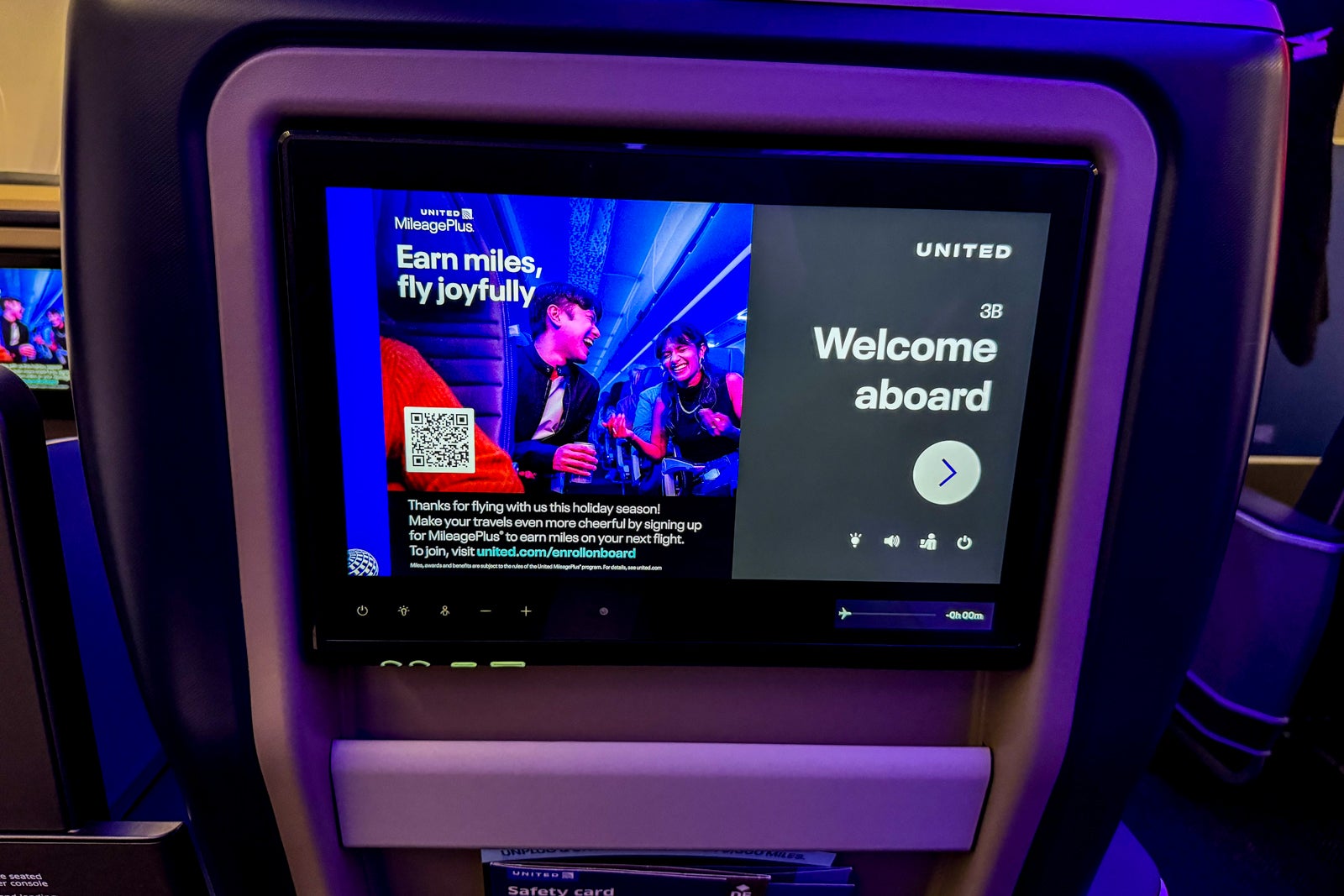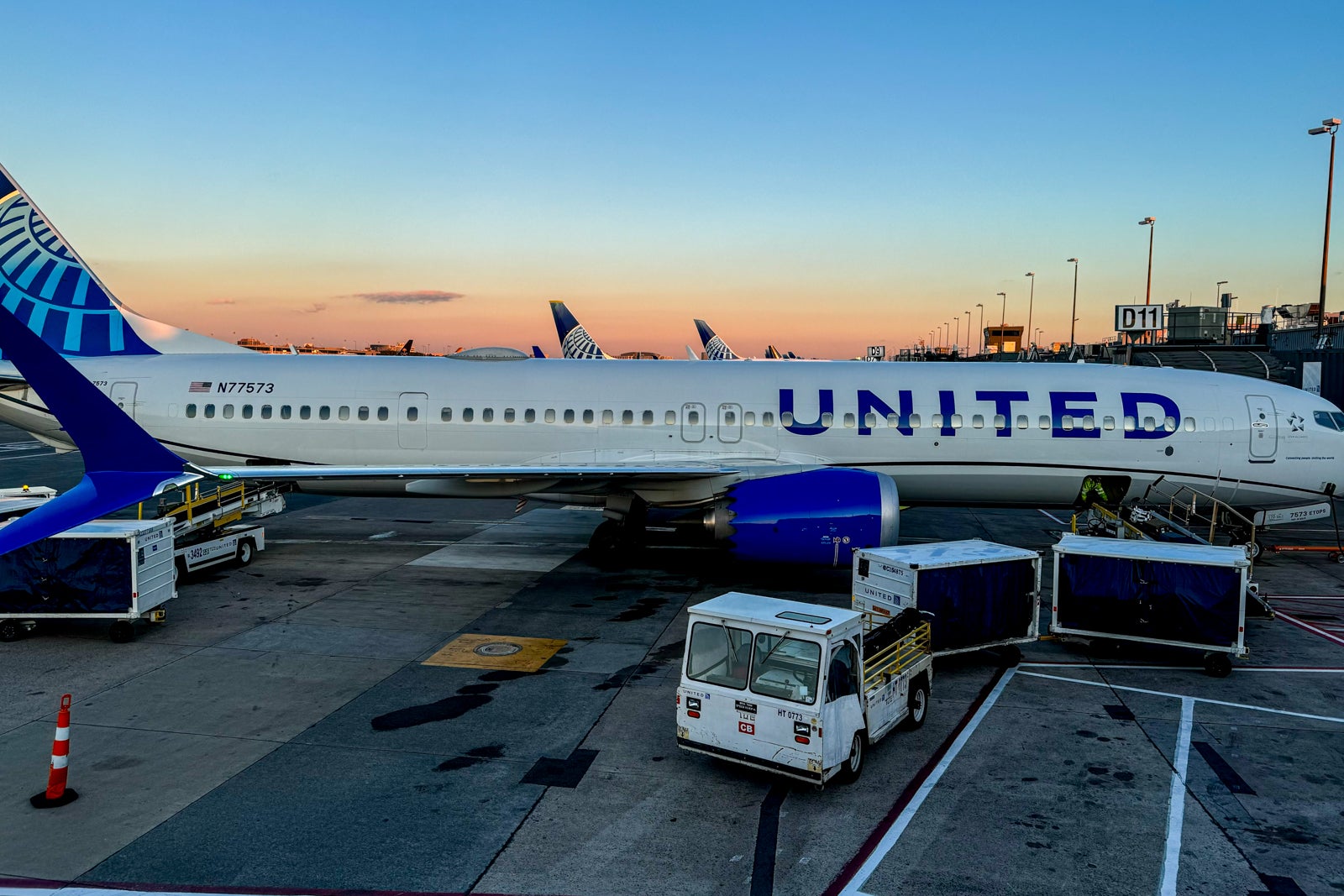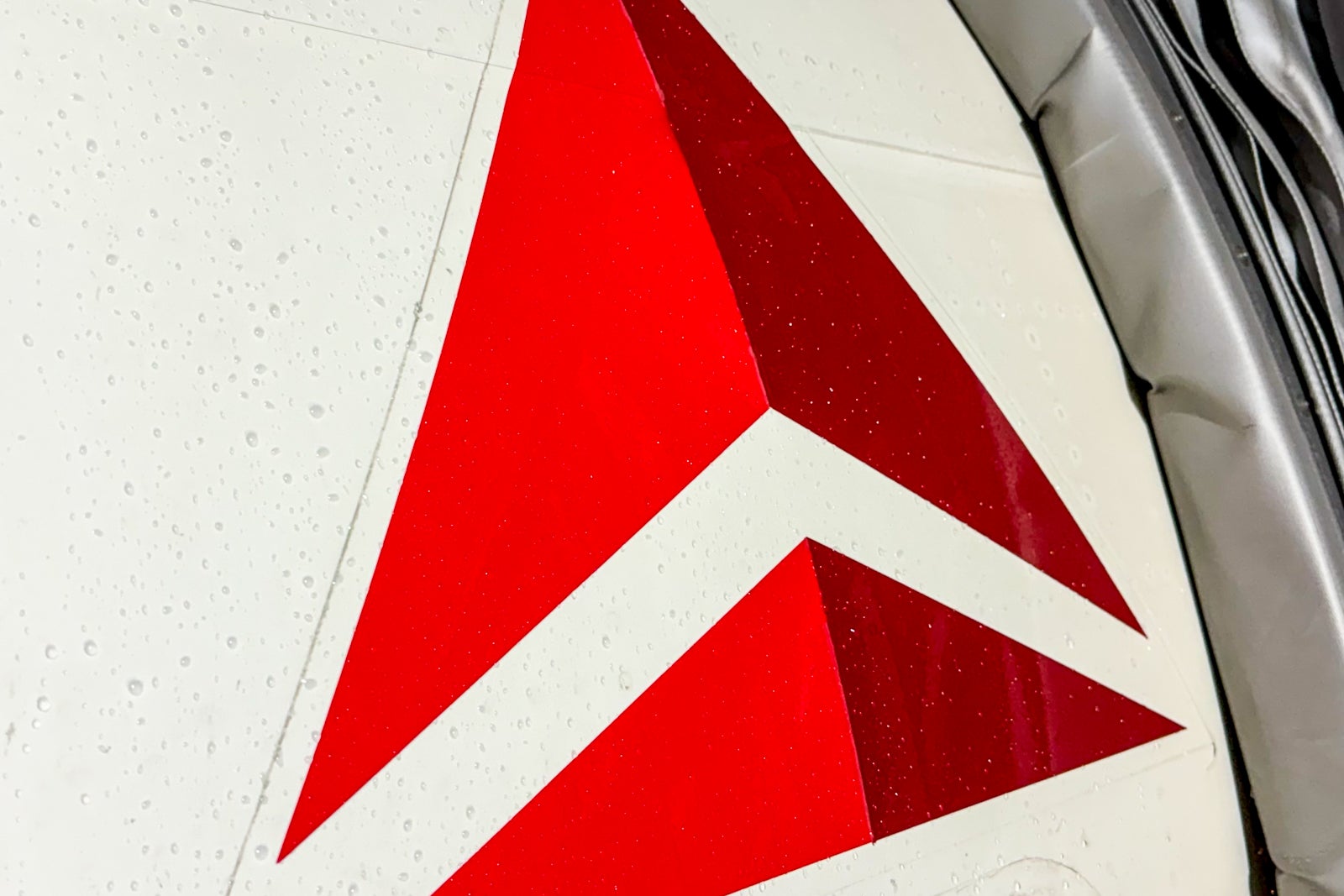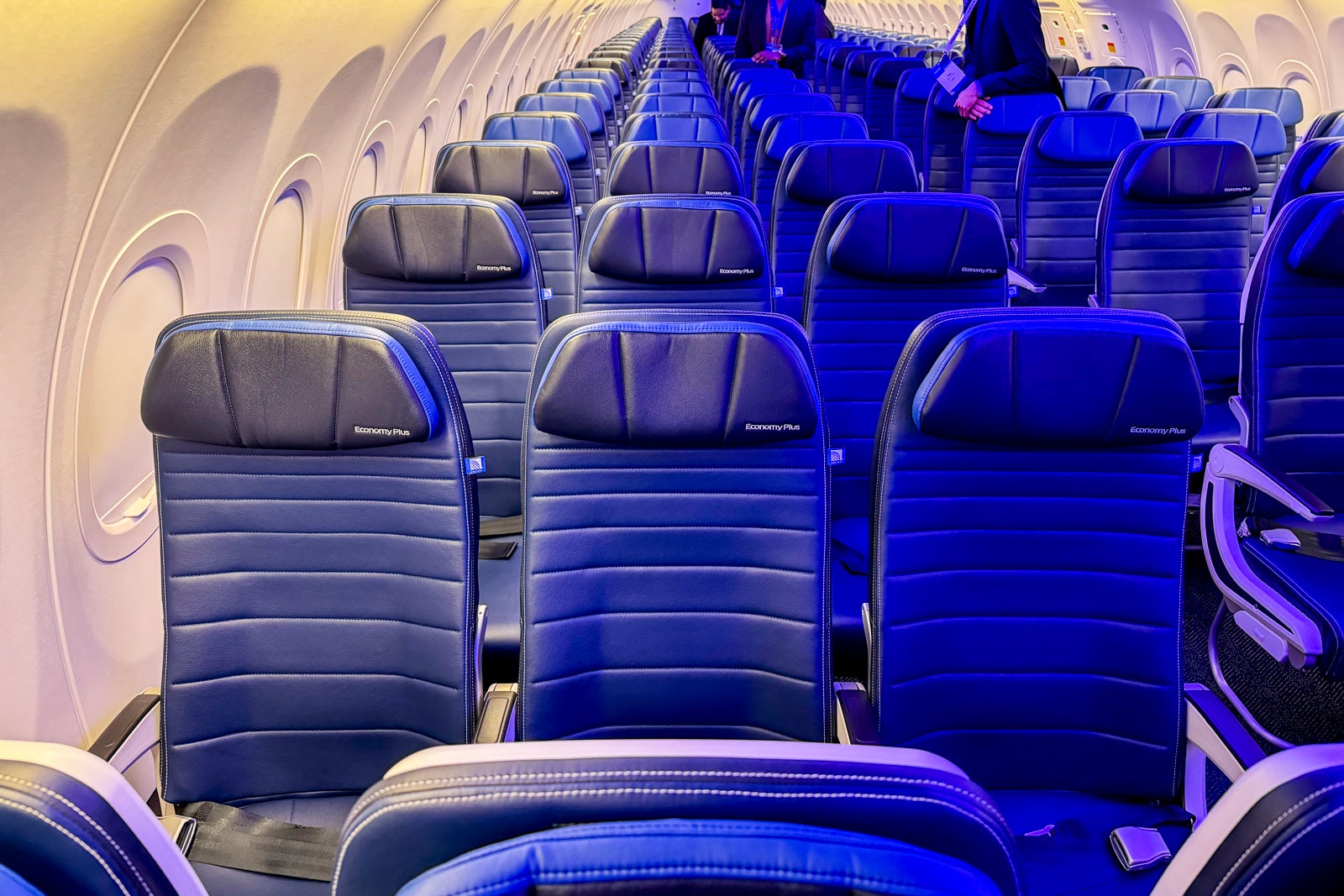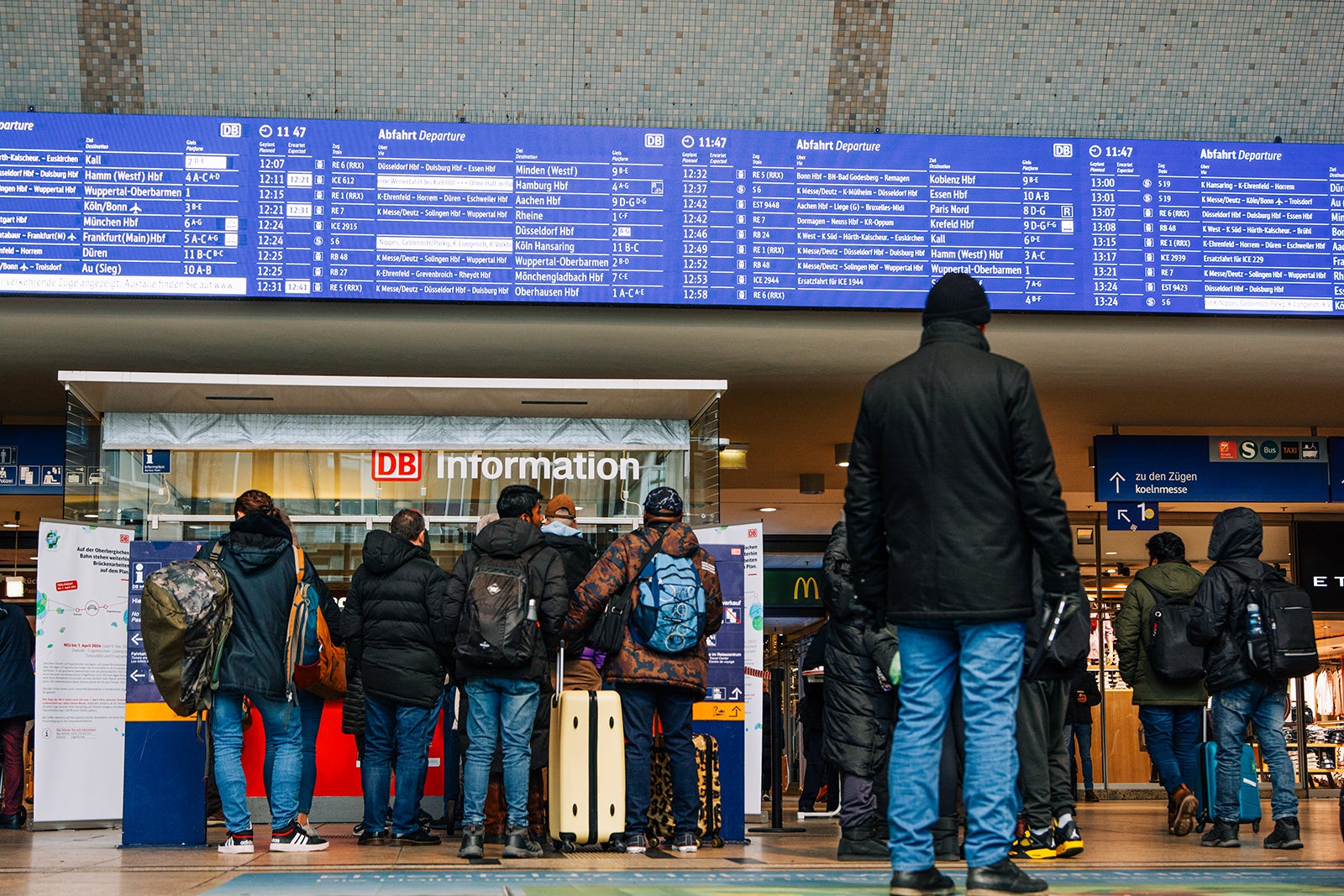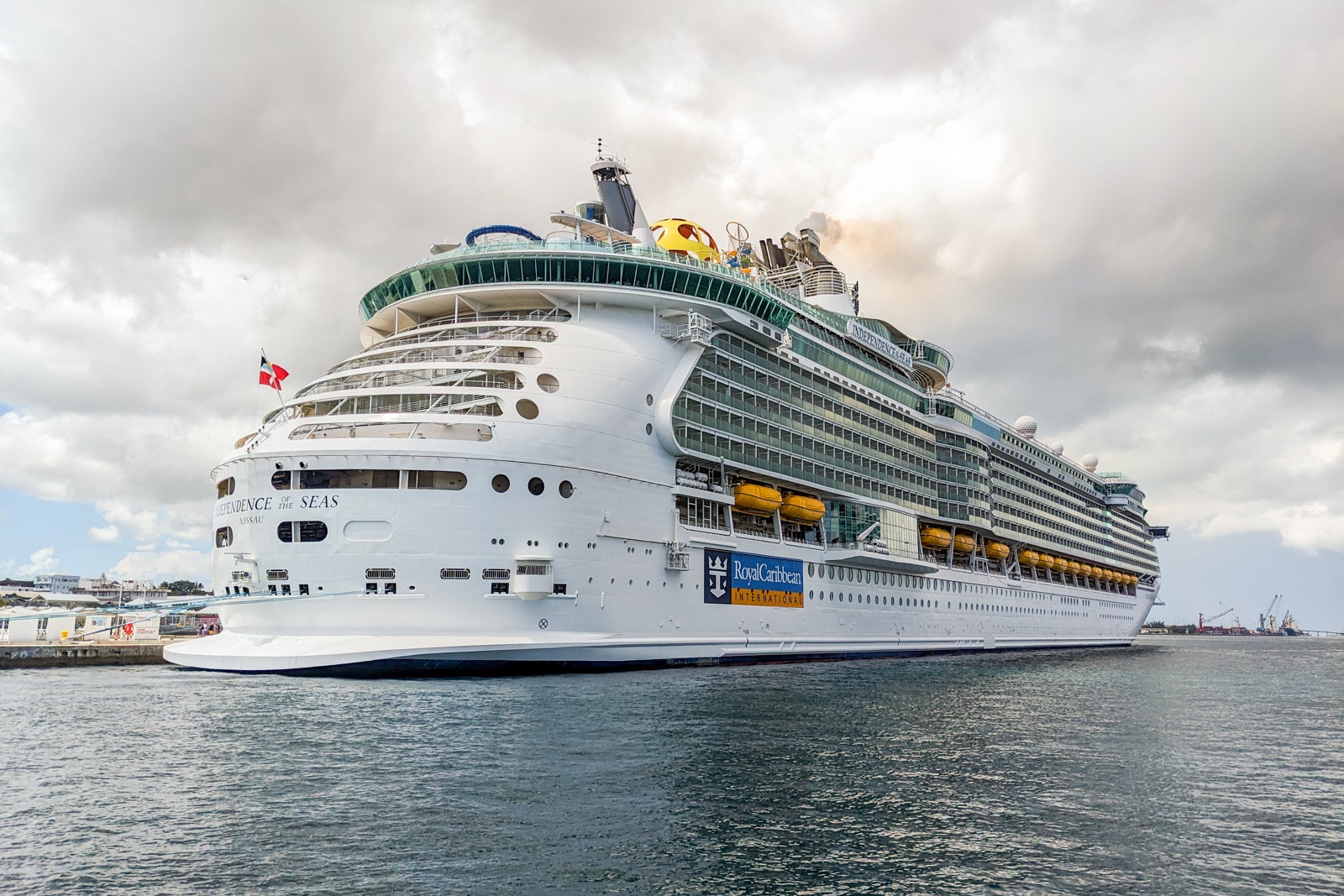United is halfway done with cabin overhauls, battles rival Delta for best inflight tech
For close to two years, it’s been clear United Airlines wouldn’t meet its original 2025 target to update all of its aircraft interiors with promised bells and whistles like seatback screens and large enough overhead bins to fit every passenger’s rollaboard bag.
But after supply chain constraints slowed the so-called “United Next” cabin program early on, the Chicago-based carrier is reporting progress.
United finished 2024 nearly halfway done with retrofitting its jets, executives said last week.
Pro tips: 11 major mistakes people make with travel rewards credit cards
“With installation work moving quickly now, we expect to be at 75% [done] by the end of 2025,” United chief commercial officer Andrew Nocella told analysts on the company’s Jan. 22 earnings call.
An ambitious cabin improvement program
United first announced the massive cabin overhaul program in 2021 alongside a historic order of new jets. Both initiatives have encountered delays in recent years, though, owing to global supply chain disruptions and aircraft delivery delays at Boeing and Airbus.
As early as spring 2023, TPG reported that United’s plans to outfit its fleet with the new “signature interiors” would likely spill beyond the airline’s original goal of 2025.
Even those delays, though, didn’t stop the carrier from expanding its ambitious cabin overhaul plans to include parts of the United Express regional jet fleet.
Though the retrofit process has taken longer than originally planned, the changes are already producing clear benefits for passengers, with more and more updated jets carrying passengers today — including United’s spiffy Airbus A321neo I toured last month in Washington.

Daily Newsletter
Reward your inbox with the TPG Daily newsletter
Join over 700,000 readers for breaking news, in-depth guides and exclusive deals from TPG’s experts
Staying connected: United Airlines details 6 big inflight entertainment updates, including all-new Control Tower map
Seatback screens and Bluetooth connectivity
Another milestone United expects in 2025: By the end of the year, its planes will fly with 150,000 seatback screens across its fleet, Nocella told analysts last week.
That word came on the same day TPG’s Zach Griff reported the carrier had recently outfitted its 300th jet with Bluetooth connectivity, allowing passengers to link their AirPods and other wireless headphones to the inflight entertainment systems.
Hundreds of additional United jets will get that technology as retrofit work on the airline’s fleet continues — and as the airline receives new aircraft.
United, Delta battle for high-dollar customers
Speaking of Bluetooth, the technology is perhaps the latest front in what seems to be an escalating fight for the best inflight technology between United and Delta Air Lines, arguably its main domestic competitor.
Escalating inflight tech improvements
You may recall, Delta this month announced it would follow in United’s footsteps by expanding Bluetooth-capable seatback screens to a larger portion of its fleet (albeit a smaller expansion than what United had already announced). It was part of a bigger inflight entertainment upgrade the Atlanta-based carrier unveiled during a star-studded event at the Sphere in Las Vegas, including a new onboard partnership with YouTube.
It’s not just Bluetooth.
United in recent months followed Delta’s bold move to outfit its fleet with free, upgraded Wi-Fi service — and then earlier this month accelerated its expected timeline for its Wi-Fi rollout, which on United will be powered by Elon Musk’s Starlink.
Leading the pack
More broadly, both airlines have largely sat atop the U.S. industry in profitability in recent years, amid unwavering customer demand for long-haul international flights and premium seating options.
And both carriers have cast doubt on other airlines’ ability to make up ground, even as a growing list of low-cost carriers have announced more premium products — from first-class-style recliners at Frontier and JetBlue to JetBlue’s lounges, not to mention Southwest Airlines’ groundbreaking addition of extra-legroom seats.
“I don’t expect we’re going to see airlines compete at the level of United in terms of its broad range of products and experiences anytime soon,” Nocella told analysts last week. “You just can’t snap your fingers and make those generational investments overnight.”
His comments largely echoed CEO Scott Kirby’s oft-repeated mantra: that United’s advantage in the industry is “structural, permanent and irreversible” — a stance he reiterated last week.
Delta’s executives, usually less outspoken about other airlines, are similarly doubtful about premium investments made by their lower-cost competitors.
“I’m completely skeptical,” Delta chief communications officer Tim Mapes told me in a recent interview.
“That the industry would raise its game is great to us,” Mapes added. “But I think we’re very pleased with the decisions we’ve made, and the $15 billion of investment over 15 years that really gives Delta a leg up on them, no matter what people choose to do.”
Basic economy serves its purpose
Part of the reason United sees such an advantage in the industry is not just its premium offerings, which, it argues, increasingly put it on competitive ground with Delta.
The carrier also believes its basic economy product — perhaps the most restrictive among the Big Three legacy U.S. carriers — has been serving its purpose.
Larger network carriers first rolled out stripped-down fares in the 2010s as a way to compete with the ultra-low base fares offered by budget airlines.
Each of the three legacy carriers (United, Delta and American Airlines) have slightly different rules tied to basic economy — but United, notably, is the only one to bar passengers flying on no-frills tickets from bringing a full-size carry-on bag on board.
Yet, the product remains a popular offering, executives shared last week: During the final three months of 2024, which included the holiday season, around 15% of passengers flew on a basic economy fare, United said. That was up by more than 20% over 2023.
“It’s done exactly what we wanted it to do,” Nocella said.
Of course, if you’re thinking of flying on a basic economy ticket — with any airline — be sure to closely review the policies tied to your ticket. Depending on the airline, you may earn fewer frequent flyer miles (or none at all), or be barred from selecting a seat before check-in.
Related reading:

